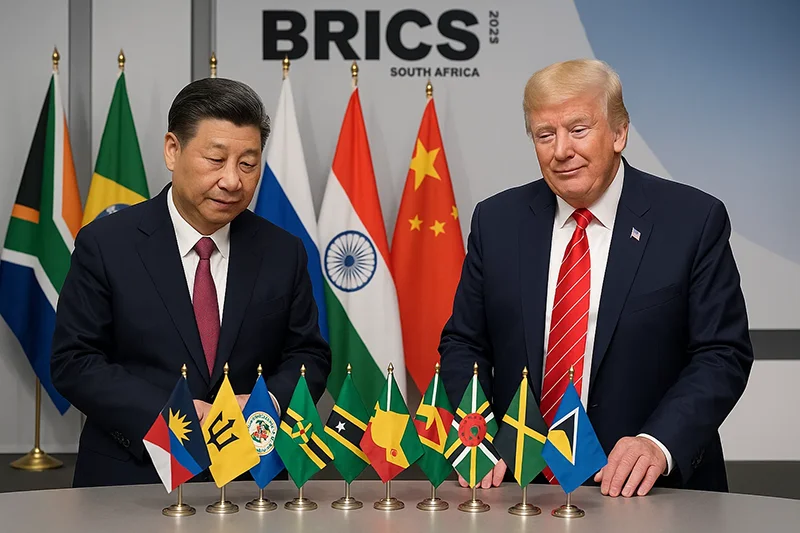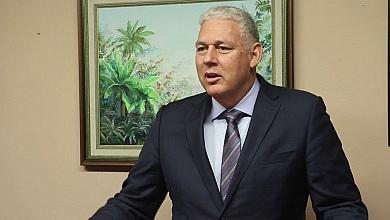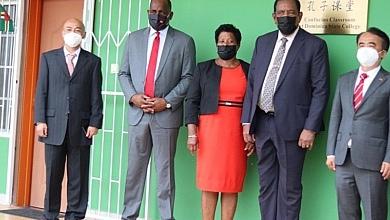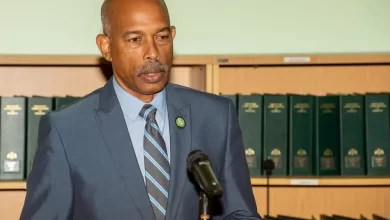Does the Caribbean, especially Dominica, need to Choose Between the U.S., China, or BRICS?

Dominica, dubbed the “Nature Island of the Caribbean”, is not typically the focal point of geopolitics. But its story of survival, resilience, and strategic diplomacy speaks to a broader regional dilemma: as global power dynamics shift, Caribbean nations increasingly find themselves fielding overtures from major players, each with distinct offers and expectations.
Roosevelt Skerrit, Dominica’s prime minister since 2004, has emerged as an emblem of this tightrope walk. Skerrit leveraged relations with China to fund a post‑Hurricane Maria rebuild, from schools to an international airport. Simultaneously, he’s maintained traditional partnerships with the U.S. and regional blocs like CARICOM, without making overt pledges of exclusivity. That balance is the core question: is the Caribbean being pushed to pick one, or can it play all three?
China: Infrastructure, investment, and influence
Over the last decade, China has been aggressive in deepening ties across the region. At least eight Caribbean countries, including Dominica, Barbados, Jamaica, Antigua and Barbuda, have joined the Belt and Road Initiative. Those alignments have translated into roads, energy systems, schools, visa exemptions, cultural exchanges, and scholarships.
In Dominica, the 2004 diplomatic pivot from Taiwan opened a path to Chinese financing, and following Hurricane Maria’s devastation in 2017, Beijing funded six schools and major airport infrastructure, an unmistakable sign that, for many regional leaders, China equals tangible benefits.
From the Caribbean to the canal: strategic stakes
But beneath these infrastructure deals lies a strategic tug-of-war. A new CSIS–sponsored report finds Chinese firms operating 31 ports across Latin America and the Caribbean, a figure twice previous estimates, and flags them as possible levers of influence over trade chokepoints. One such port, in Jamaica, ranks as the most sensitive to U.S. national security due to its volume and proximity to American bases.
Though Dominica itself is not yet a major port target, Caribbean nations must weigh infrastructure gains against long-term liabilities, and potential perceptions of Beijing’s geopolitical advance.
The U.S.: re‑engagement, skepticism, and shifting guardrails
For decades, the U.S. has branded the Caribbean as its “third border” and provided trade access, maritime security, and disaster assistance. But more recently, Washington’s tone has hardened, particularly under louder proclamations of a revived Monroe Doctrine, stimulated by warnings about Chinese influence in strategic infrastructure .
Military commanders like General Laura Richardson have testified to Congress, alerting lawmakers to China’s growing footprint in the Caribbean and pressing for enhanced U.S. engagement, both diplomatic and material, to protect what the U.S. regards as its own sphere of influence.
Pragmatic U.S. leverage?
Washington is leaning into regional energy, security, and infrastructure cooperation, assisting in counter-narcotics and even proposing satellite and drone tech transfers to curb organized crime. That said, Caribbean leaders are cautious; U.S. rhetoric framed as protection can feel paternalistic. And with Washington’s attention drifts tied to political cycles, the reliability of U.S. engagement often comes into question.
BRICS: a nascent pivot away from dollar dominance
With nations like Colombia signaling ambitions to join BRICS, the regional contours of this bloc are expanding. Yet it remains nebulous, without the scale or clarity of U.S. or Chinese commitments. There’s talk of new development finance avenues, non-dollar loans, and political solidarity, but most of it remains on the drawing board.
For smaller economies like Dominica, BRICS represents an intriguing alternative, not for immediate infrastructure funding, but as a political counter-balance. If CARICOM countries collectively engage, they may carve a new middle-ground that lessens dependency on any one global actor.
Dominica at the fulcrum: survival, sovereignty, and smart diplomacy
Roosevelt Skerrit’s tenure offers a template. By aligning with China, Dominica boosted reconstruction and infrastructure. By maintaining its U.S. and CARICOM ties, it stayed inside traditional trade and security ecosystems.
That said, Dominica’s economy remains modest, GDP around US $0.74 billion, heavily reliant on agriculture, tourism, and financial services . That makes external financing essential, especially after climate shocks. Becoming an offshore financial center and leveraging a citizenship by investment scheme have been strategic stopgaps. But the strategic game demands more than quick wins; it requires resilience.
Risk calculus
- Infrastructure loans from China risk over-dependence, cost spirals, or taking on debt that becomes politically fragile .
- U.S. scrutiny, including visa policy friction or aid conditionality, can emerge if Washington senses security threats .
- BRICS is a hopeful path, but absent financial institutions designed for small island developing states, its impact remains unclear.
CARICOM unity as strategic leverage
CARICOM, comprising 15 full members including Dominica, offers a multilateral platform for regional diplomacy . A united bloc, aligning with some for infrastructure, with others for trade, and selectively engaging BRICS, could yield greater negotiating power than any unilateral approach.
Under Skerrit’s chairmanship (July–December 2023), CARICOM advocated for climate resilience, pandemic response, and economic diversification, a platform that blends autonomy with strategic positioning.
Comparative snapshot
| Partnership | Offers | Risks & Conditions | Caribbean Appeal |
|---|---|---|---|
| China | Infrastructure financing, visas, investments | Debt, geopolitical dependence, lack of reciprocal trade preferences | Quick rebuild, low‑political‑cost deals |
| U.S. | Security aid, disaster response, trade links | Political rhetoric, shifting priorities, paternalism | Proximity, stable market, democracy alignment |
| BRICS | Emerging financing in non‑dollar currencies | Unclear support, low immediate impact | Political neutrality, financial pluralism |
Verdict: Not a tri‑choice, but a strategic calculus
Historically, the Caribbean has weathered colonial divides not by choosing single patrons, but by playing powers off each other, extracting maximum benefit while retaining sovereignty. That model is evolving now, but it remains viable.
What should the Caribbean, and Dominica in particular, do?
- Forging diversified finance
Take Chinese infrastructure deals, but only with terms that ensure transparency, affordable debt, and tangible economic return. - Cultivating trust with the U.S.
Deepen security, energy, and trade cooperation while asserting national dignity, insist on relationship models built on partnership, not protection. - Testing BRICS waters
Engage with BRICS institutions early to build alternatives, even if benefit is short-term, it changes the leverage equation. - Coordinated regional diplomacy
CARICOM must function as a united front. When states act collectively, on currency diversification, climate finance, or trade, they can secure stronger terms and global respect.
In the End, It’s About Leverage
Dominica and the wider Caribbean are not pawns in a new Cold War, but savvy players on a global board. Their success will depend on humility, strategy, and unity. By engaging, but not committing, they can navigate between Chinese infrastructure, U.S. security and trade, and the potential, but still latent, BRICS partnerships.
In doing so, an island like Dominica can avoid being caught in fractured alignments, and instead position itself as sovereign actor shaping it’s own destiny. That’s not about choosing one side, it’s about mastering the art of strategic choice itself: blending power, profit, and principle on its own terms.
This article is copyright © 2025 DOM767








